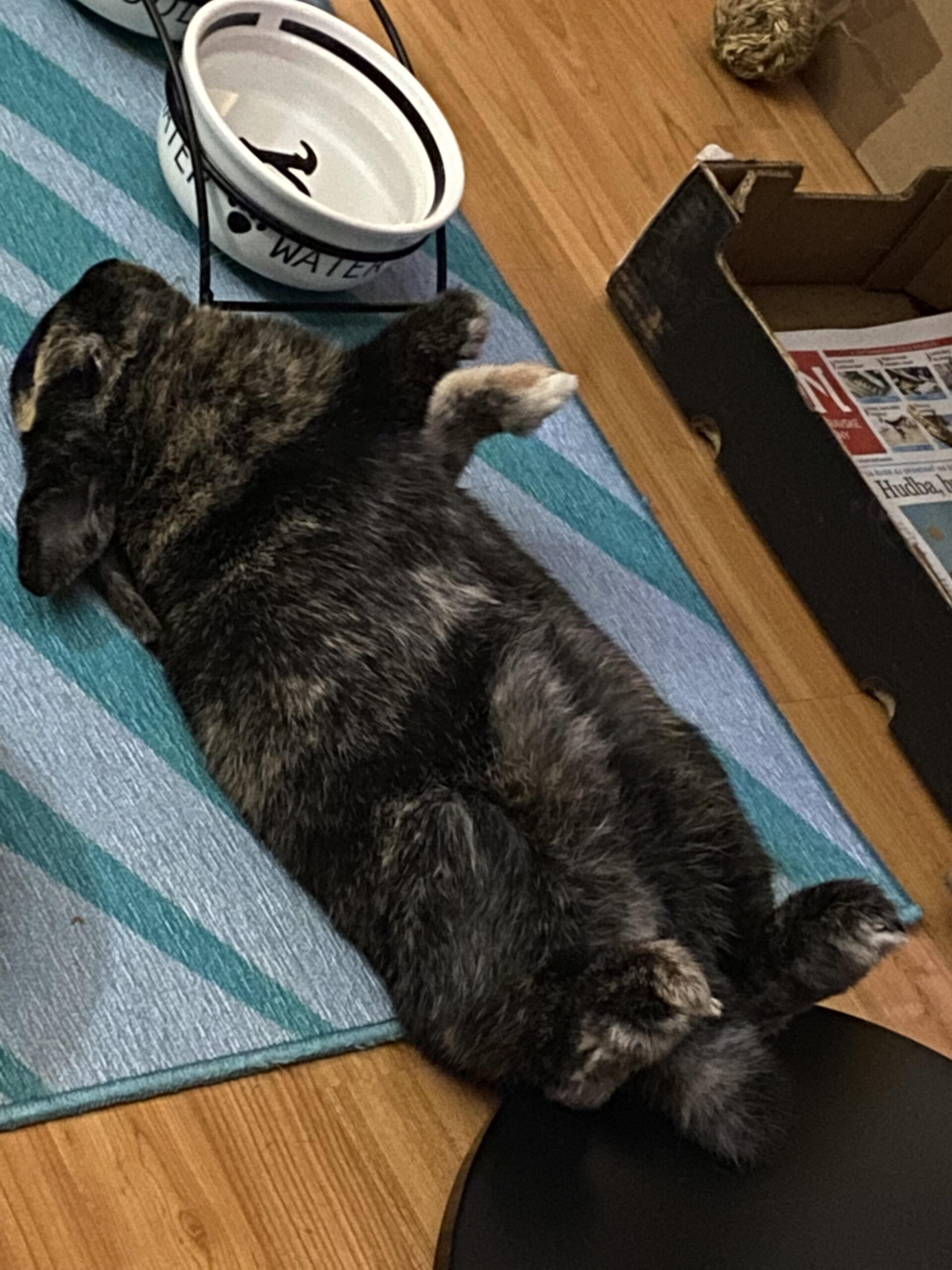Why Does My Rabbit Lay On His Back?
Rabbits are known for their unique behaviors, and one of the most adorable and intriguing ones is when they lay on their backs. While it may seem strange to see a rabbit in this position, there are several reasons why they do it. In this article, we will explore the various factors that can contribute to a rabbit laying on its back, as well as provide some insight into this fascinating behavior.

1. Relaxation and Comfort
One of the primary reasons why rabbits lay on their backs is to feel relaxed and comfortable. When a rabbit lays on its back, it exposes its vulnerable belly, which is a sign of trust and contentment. It indicates that the rabbit feels safe in its environment and is completely at ease. This behavior is often observed when rabbits are in a calm and secure environment, such as when they are lounging in their favorite spot or near their trusted human companion.
2. Cooling Down
Rabbits don’t have sweat glands like humans do, which means they have different ways of regulating their temperature. One of these methods is by laying on their backs to cool down. The exposed belly allows the rabbit to dissipate heat more efficiently, especially when they are feeling hot or overheated. This behavior is commonly observed during warmer weather or when the rabbit has been particularly active.
3. Stretching and Exercise
Laying on their backs also provides rabbits with an opportunity to stretch and exercise their muscles. When rabbits stretch, they elongate their bodies and flex their limbs, which helps to improve circulation and prevent muscle stiffness. This behavior is particularly beneficial for rabbits who live in small enclosures, as it allows them to engage in some physical activity and alleviate any discomfort or tightness in their muscles.
4. Seeking Attention
Like many other pets, rabbits are social animals and enjoy interacting with their human companions. When a rabbit lays on its back and exposes its belly, it may be seeking attention or inviting you to interact with them. By assuming this position, they are signaling that they are open to petting or grooming and are looking for some affectionate interaction. This behavior is often accompanied by other subtle cues, such as nudging or nuzzling your hand.
5. Indicating Illness or Distress
While it is generally harmless for rabbits to lay on their backs, there are instances when this behavior can indicate an underlying health issue or distress. If your rabbit suddenly starts laying on its back excessively or displays other abnormal behaviors, it is essential to monitor their overall well-being. In some cases, rabbits may lay on their backs to relieve pain or discomfort caused by digestive issues, injury, or illness. If you suspect that your rabbit’s behavior is concerning, it is advisable to consult a veterinarian for a thorough examination.
Frequently Asked Questions (FAQs)
Is it normal for rabbits to lie on their backs?
Yes, it is normal for rabbits to lie on their backs. It usually indicates that they feel safe, relaxed, and comfortable in their environment.
Why does my rabbit lay on its back when it is hot outside?
Rabbits lay on their backs to cool down when they are feeling hot. The exposed belly helps dissipate heat more efficiently.
Should I be concerned if my rabbit frequently lays on its back?
Frequent laying on the back may indicate an underlying health issue or distress. If you notice any abnormal behaviors, it is best to consult a veterinarian for advice.
How can I provide a comfortable environment for my rabbit?
To ensure your rabbit feels safe and comfortable, provide them with a spacious and secure enclosure, plenty of fresh water, a balanced diet, and regular mental and physical stimulation. Additionally, spending quality time with your rabbit and providing affectionate interaction can contribute to their overall well-being.
Related Articles…
Copyright Notice:
Images displayed on this website are not our property, but are procured from the internet. If you hold copyrights to any image and wish for its removal, please get in touch with us.